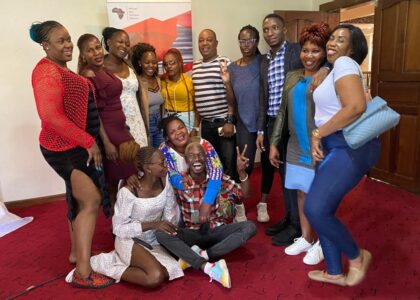HIV Prevention eHealth interventions for sex workers in Africa
ASWA joined AVERT -@Avert_org in a zoom meeting held on 3rd September 2020 at 2 P.M to disseminate key findings from a research on female sex workers which was conducted by Louisa Manby-UCL (University College London), @lj_manby .The research methodology involved interviews and focus groups.
The 2 research questions were:
- What is the effectiveness of eHealth interventions for HIV prevention among women in Sub-Saharan Africa?
- What is the feasibility and acceptability of eHealth interventions for HIV prevention among female sex workers in Sub-Saharan Africa?
Louisa highlighted the Pitfalls of the current face-to face interventions as being limited in scope and also limited in coverage. She explained that the technology use had increased 10-fold in the last 20 years and that 85% of female sex workers owned a mobile phone.
Effectiveness
She added that the effectiveness of eHealth interventions was as follows:
- HIV-prevention behaviours: Significantly improved
- HIV-management behaviours: Significantly improved
- HIV-related biological outcomes: Improved but no significant effect
She added that eHealth interventions were practical, attainable and were easily accessible; mobile phones were reachable and literacy was not recorded as an impediment/barrier to accessing the services. The sex workers were willing to learn and engage the eHealth interventions. In addition, the content was practical and actionable.
Threats
She said that there exists distrust towards technology and also that interventions would inadvertently/accidentally disclose HIV status or line of work.
The significance
- The eHealth interventions were successful in improving HIV-related behaviours among women.
- Text messages were the most practical intervention among female sex workers
- Must be specifically designed to meet the unique needs and preferences of female sex workers.
Recommendations
1.The need for more qualitative research to better understand the needs and preferences of female sex workers. The qualitative focuses on descriptive data /text-based data. Qualitative research is primarily exploratory and it is used to gain an understanding of underlying reasons, opinions, and motivations to provide insights into the problem or develop ideas or hypotheses
2.The need for more quantitative research, including Randomised Controlled Trials, with female sex workers. The quantitative research focuses on measurable data i.e deals with numbers.
She finalized by highlighting the Current text message intervention for female sex workers under study.
- Informative and motivational messages and role-model stories
- Content covers family planning, HIV, rights and violence content
- Delivered 2-3 times a week
- Option to request more information free of charge
Ruth Morgan the NSWP Global Coordinator raised concerns over the use of cell-phones to provide HIV prevention to sex workers which poses a security risk to the sex workers.
You can download the presentation that Louisa Manby gave here.
More notes on the summary of her findings, along with notes from the discussion that followed here.


